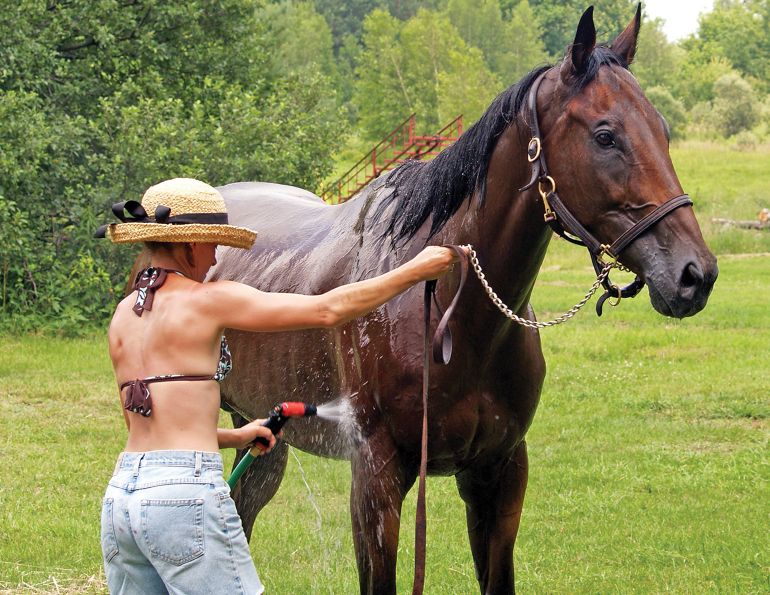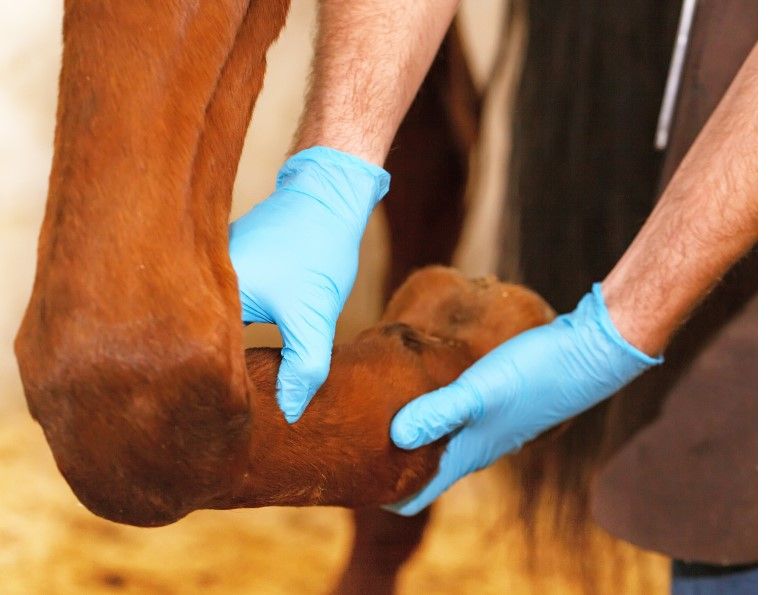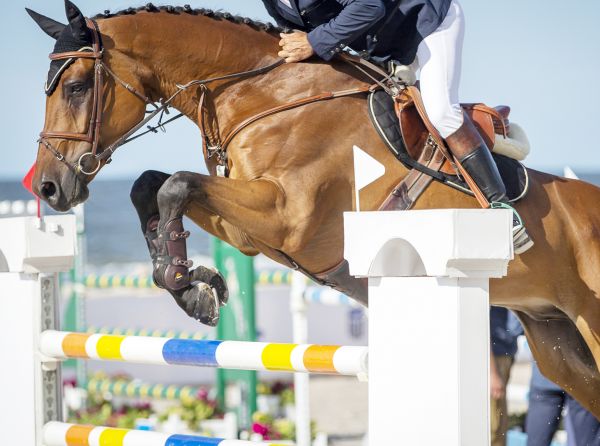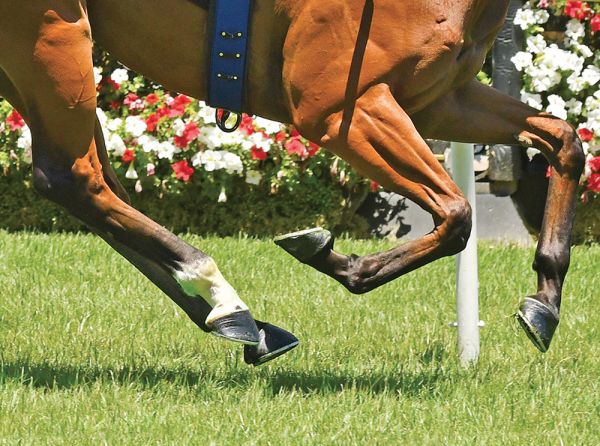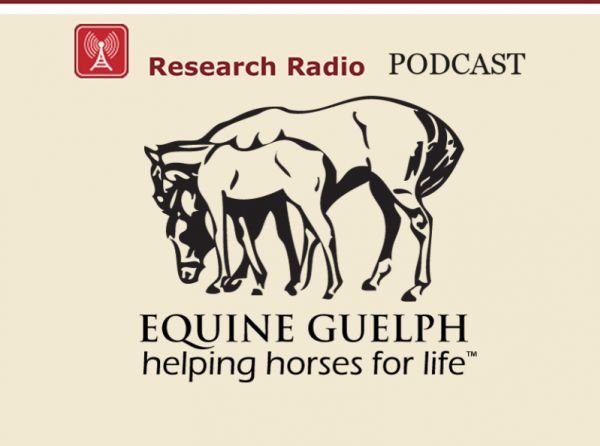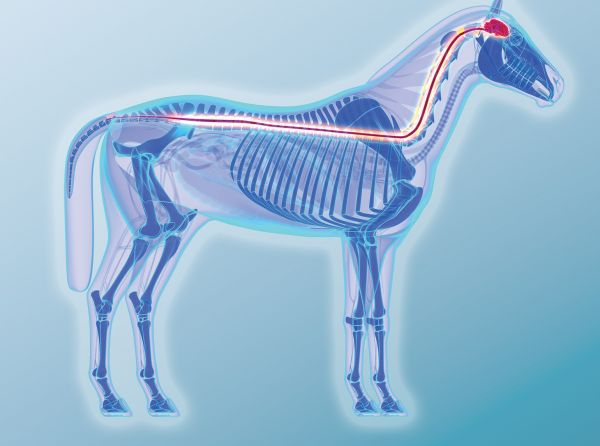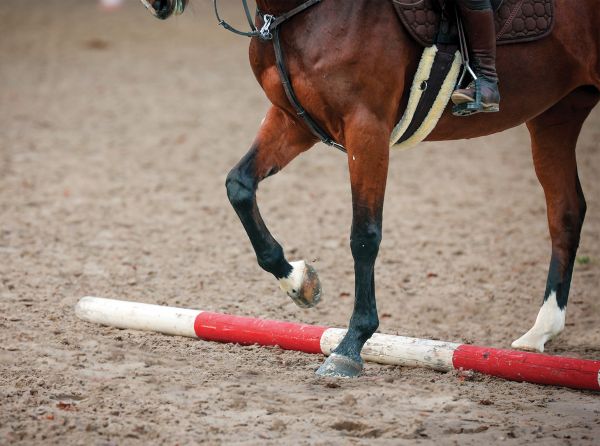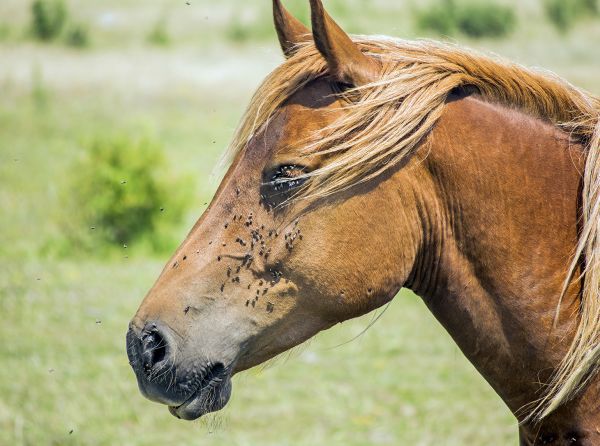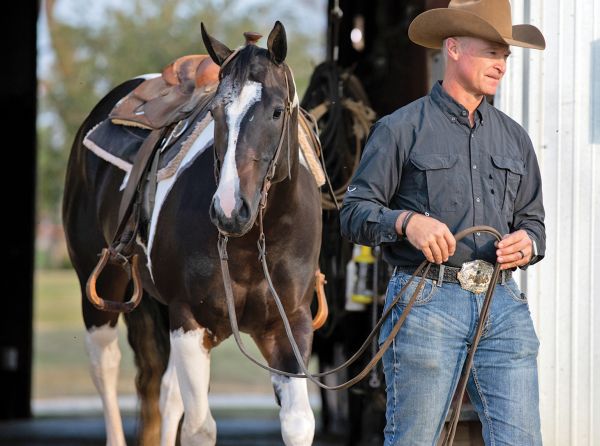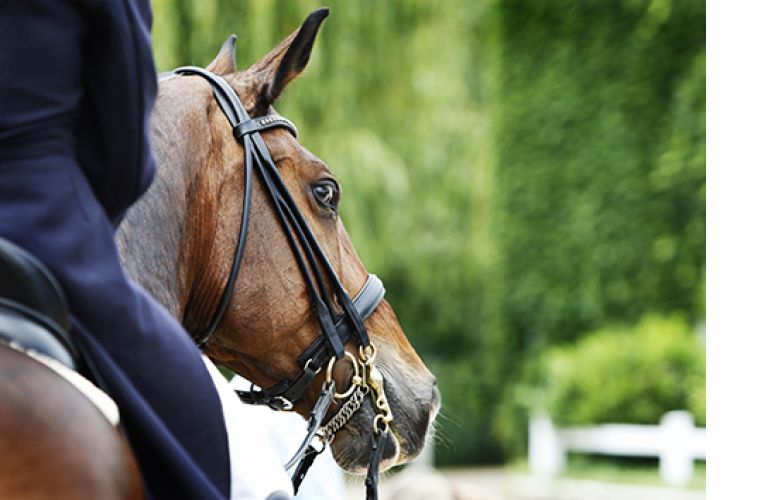By Margaret Evans
When our 18-year-old Thoroughbred gelding, Jack, began to display symptoms of colic, it was immediately worrisome. Over the years we had lost two other horses to more serious colic caused by strangulating tumours wrapped around the intestine. Both horses had to be euthanized. So Jack’s restlessness, lack of appetite, pawing, anxiety, and his need to roll set off alarm bells. I kept him moving constantly until the vet arrived. Diagnosed with spasmodic colic, Jack was given an anti-inflammatory medication. A few hours later, he had relaxed and had started to eat and drink.
Colic is a condition many horse owners worry about, hoping it can be treated quickly and simply should it occur. But some conditions call for surgery and owners are then faced with challenging decisions about surgical outcomes, complications, post-operative care, cost, and future performance.
Colic, an umbrella term for abdominal pain, can have many causes. It can affect anywhere from four to ten percent of horses at some point during their lives and can be mild as in Jack’s case, or serious and sometimes life-threatening.
Typical physical signs exhibited by the horse include agitation, rolling, looking at the flanks, kicking at the stomach, hunching the back, sweating, not wanting to eat, and being unable to defecate. Often it is a mild bout of gas pain that can be resolved with a single dose of anti-inflammatory medication and hand-walking. But the exact same symptoms can herald much more sinister conditions, which is why colic should always be taken seriously with a visit from the vet for proper diagnosis.
For horses requiring surgery, a recent study that followed post-operative colic horses in Finland showed that colic surgery can result in excellent positive outcomes for both horses and their owners.
“Many horses encounter colic at some point of their life and, fortunately, many of the episodes can be treated conservatively with medication and fluids,” says Dr. Isa Immonen with the University of Helsinki, Finland, and one of the report’s authors. “Sometimes, however, the horse requires surgical treatment, which is expensive and a major operation for the horse. This may be a difficult life-and-death decision for the owner.”
The researchers looked at the long-term outcomes of 236 horses that had colic surgery between 2006 and 2012 and focused on owner satisfaction and patient performance after surgery. The mean average age of the horses at the time of surgery was 8.9 years and warmbloods were the most prominent breed representing 38.6 percent of the study population. Of the horses that survived to hospital discharge, 83.7 percent returned to their previous or intended activity, and 78.5 percent regained their pre-surgical or higher level of performance.
The vast majority of owners (96.3 percent) were satisfied with the veterinary care and almost all of them (98.3 percent) evaluated the recovery after the colic surgery to be satisfactory, or above.
“Colic surgeries can get rather complicated, especially if there is need for bowel resection due to compromised blood flow or necrotic bowel,” says Immonen. “This in turn can lower the prognosis for post-operative survival according to previous studies. It should also be noted that the horses taken into colic surgery are generally not in good clinical condition as it is an emergency surgery and they have a higher risk for complications and mortality during induction, the anesthesia period, and recovery from anesthesia.”

Before surgery, a sedated horse is led to the induction stall for anesthesia.
Immonen says that, because the horse is a large animal, sometimes an accurate diagnosis, its particular situation, and what the prognosis may be can only be verified when the abdomen is seen and explored. Veterinarians are only able to ultrasound, palpate rectally, x-ray, or examine parts of the intestine and abdomen before surgery and can only make a tentative clinical diagnosis according to the different findings and clinical status. Surgery can therefore reveal some surprising factors that the vet and the horse owner must be prepared for.
“The most common single diagnosis was a type of displacement of the large intestine called the right dorsal displacement (RDD),” says Immonen. “In general, large intestinal displacements were the largest group of colic. Depending on the patient, the RDD was accompanied with a torsion of the colon and/or colonic obstruction.”
She adds that strangulation conditions, which restrict blood flow to the intestine, are the ones that usually need surgical intervention as the condition rarely resolves itself.
“In many cases, displacements (both non-strangulating and strangulating) are accompanied by an intestinal obstruction (as one of the inflicting causes or a secondary problem to the strangulating lesion/displacement) so the division between the types of colic is not that simple. Simple obstructions are a common type of colic in horses and can, most of the time, be treated conservatively. But if the clinical status of the patient deteriorates, there are only a few options left. The real strangulating colics are the ones that have only a few treatment possibilities and most of the time conservative therapy is not an option because of the deteriorating clinical status of the horse.”
Understandably, horse owners worry about the cost of surgery, especially if they do not have insurance coverage. And there is no doubt that the status of insurance plays a big role in the decision to go ahead, the emotional value of the horse notwithstanding.
“In my experience, it would seem that finances are the factor that almost forcibly play the biggest role,” she says. “It is not cheap to go through a colic surgery (adding also the pre- and post-operative care to the end of the bill) but in the long-term questionnaire a large number of the owners felt that the price of the end bill was reasonable compared to the end results.”

A horse undergoes colic surgery of the small intestine. Because the horse is a large animal, sometimes a diagnosis can only be verified when the abdomen is seen and explored. Photo: Kati Niinistö, courtesy of University of Helsinki
There is no doubt in Immonen’s mind that today’s better diagnosis procedures, surgical care, and new technologies have played a large role in the improved percentages of better outcomes.
However, she says, the most important factors have been early recognition and intervention as well as timely referral of surgical colic cases. If the colic continues over a longer period, the clinical status and potential outcomes for survival may deteriorate. For post-operative conditions, better knowledge and more effective ways to manage immediate complications have positively increased survival outcomes.

Surgical findings and lesions in the small intestine during surgery. Photo: Kati Niinistö, courtesy of University of Helsinki
“Colic surgery might not always be perceived as the last possible resort to avoid death but [can now be considered] a treatment option for certain types of colic,” she says. “It should be noted that, in general, most possibly the increasing amount of information has aided the survival outcomes. Referring clinicians and owners are well informed and clinicians are able to recognize and refer the serious colic cases early.”
Immonen feels that the long-term survival and prognosis studies can definitely help the decision-making process of owners generally, bearing in mind that every horse and every colic episode is different. The overall results cannot always be extrapolated for each individual.
“Most often, the questions I encounter in my daily work are about finances, survival, prognosis, and post-operative athletic function when dealing with patients with serious colic in need of an operation. Therefore, I feel that the results clearly help [both] the owners and the clinicians.”
Providing the horse survived and was healthy enough for discharge from the hospital, the prognosis for long-term survival and return to its previous level of sports activity and performance was good following the colic surgery regardless of breed. None of the factors studied were found to compromise performance in the same discipline or the intended discipline. The majority of the horses in the study returned to their previous activity and performed satisfactorily for several years after surgery.

Dr. Isa Immonen, University of Helsinki, Finland. Photo: Kati Niinistö, courtesy of University of Helsinki
Main photo: shutterstock/135pixels










